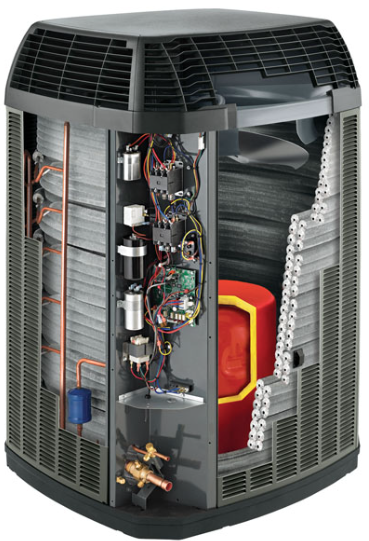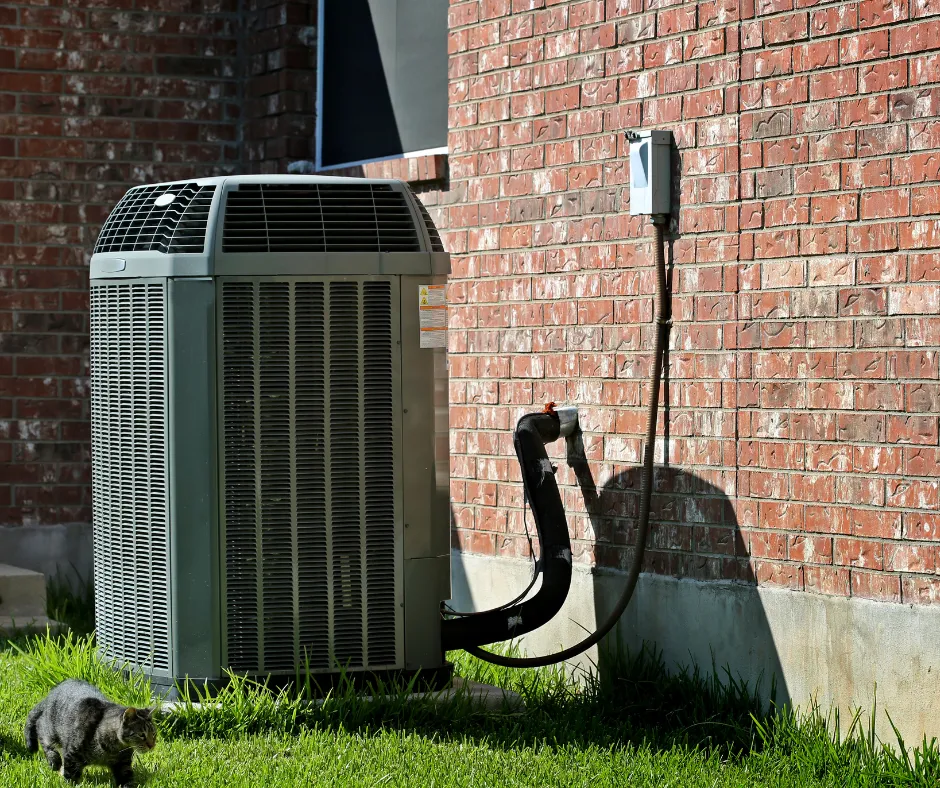When it comes to air conditioning systems, one question we get is whether they are powered by gas or electricity. Let’s explore the different components of air conditioning systems and the factors influencing the choice of AC power source.
From understanding an air conditioner’s function and key components to comparing the operation of gas and electric-powered HVAC systems, we’ll help you identify the ideal power source for your central AC.
Basics of Air Conditioning Systems
With technological advancements, air masters have devised complex air conditioning systems that ensure maximum comfort throughout all seasons. These systems, more commonly known as air conditioners, have become essential for modern living, especially in regions with extreme weather conditions.
An air conditioning system not only cools and dehumidifies the air in your home but also improves the air quality. Understanding the basics of air conditioners can benefit homeowners in more ways than one. It can help efficiently operate the system, troubleshoot minor issues, and, most importantly, make an informed decision while purchasing a new air conditioner.
Understanding the Function of an Air Conditioner
In its simplest form, an air conditioner absorbs heat from your home’s interior and moves it outdoors. This function is carried out using a chemical refrigerant, which flows in pipes between the outdoor condenser unit and the indoor evaporator coil, thereby cooling the inside of your home.

Key Components of an Air Conditioning System
To perform its duty efficiently, an air conditioning system comprises several key components, each contributing to the overall function of the air conditioner. These include the compressor, the outdoor condenser unit, the evaporator coil, and the air handling unit (or furnace).
Other important secondary parts include the refrigerant, the expansion valve, and the thermostat.
The Role of Electricity in Air Conditioners
Air conditioners are dependent on electric power to function. The HVAC system harnesses this power to compress the refrigerant gas in the outdoor condenser unit. The compressed gas then releases heat and cools down, turning it into a liquid. This cooled-down liquid then absorbs heat from your home’s interior, producing the cool air you enjoy.
Delving into AC Power Sources: Gas vs Electric
Some homeowners question, ‘Is AC gas or electric?’. The answer is simple; the the cooling side of your central air conditioning system operates on ELECTRICITY.
How Does an Electric Air Conditioner Work?
An electric air conditioning system uses electricity to power the compressor that cools the refrigerant gas into a liquid. This cooled liquid then flows into the evaporator coil, absorbing heat from the indoor air. As the liquid refrigerant absorbs the heat, it evaporates into a gas and returns to the compressor to repeat the cycle.
Gas & Air Conditioners: Understanding Your HVAC System
Natural gas or propane can be utilized by your central air system, but only as a fuel source for the furnace that is part of that HVAC system.
Comparative Study: Gas vs Electric Power Source
Some HVAC systems operate solely on electric, while some utilize both electric and gas. When considering which type is best for your home, consider the following advantages and disadvantages.
- All-Electric HVAC Systems: Unlike gas-powered HVAC, home comfort systems that rely soley on electric are 100% efficient with their electricity usage. Although they provide efficient operation, electric heat is known to be a ‘cooler’, less comfortable heat in comparison to a gas-powered furnace.
- Gas & Electric HVAC Systems: By utilizing both electric for cooling and gas for heating, you will enjoy the most comfortable indoor air experience all year round. While it provides ultimate comfort, it will require two utility bills and providers (electric & gas); in addition, gas powered heating will result in some loss of efficiency due to the byproduct of burning the gas or propane.
When deciding between a gas or electric HVAC system, homeowners must consider several factors, including cost and availability of natural gas or propane.
Factors Influencing Choice of AC Power Source
An important consideration when choosing between a gas or all-electric HVAC system is whether your home currently utilizes a gas or electric energy supply. A gas HVAC system might seem logical if your home is already equipped with a gas line. However, factors such as the location of your home, energy efficiency, environmental impact, operational costs, and maintenance needs should also shape your decision.
Energy Efficiency Comparison: Gas vs Electric
Efficiency is a crucial factor when comparing air conditioning units. A gas HVAC system tends to be more effective for heating in cold weather. However, an electric HVAC system can often outperform gas in efficiency. Keep in mind that a unit’s efficiency not only influences your comfort level but also your utility bills. Hence, before you air condition your home, consider the efficiency of your preferred power source.
Maintenance Requirements and Costs
Maintenance is essential for all cooling and heating systems, regardless of whether they are gas or electric. The outdoor condenser unit, a pivotal component of any air conditioning system, requires homeowner attention for for the cooling season. It’s important to have seasonal maintenance performed prior to or early on into the cooling season. In addition to that, regardless of whether your heating component is gas or electric, you will want to schedule the same seasonal tune up for your furnace or air handler. Costs to perform these service should remain simlilar, unless you operate with a heat pump and gas furnace, which would require additional systems checks, thus typically coming with a slightly higher price for service.

Environmental Impact
Choosing an air conditioning system also involves considering the impact on the environment. Gas HVAC systems are widely regarded as less eco-friendly due to their emissions. However, the environmental footprint of an electric power HVAC system largely depends on the source of the electricity. For instance, if powered by a coal-fired power plant, the environmental impact could mirror a gas system’s. Comparatively, electricity from renewable sources, such as wind or solar energy, makes an all-electric cooling and heating system a greener choice.
Identifying the Ideal Power Source for Your AC with Logan
Logan AC and Heat is a leading provider of HVAC services in the area. We can help you choose between electric vs. gas HVAC systems by considering your needs and budget. We will also assess your home’s current Ac and heating system and discuss the pros and cons of each type of system so that you can make an informed decision. We want to help you choose the best AC system for your needs and budget.
If you want to learn more about all-electric vs. gas systems, please get in touch with Logan AC and Heat today. We would be happy to answer any questions you have and help you choose the best system for your home.





















